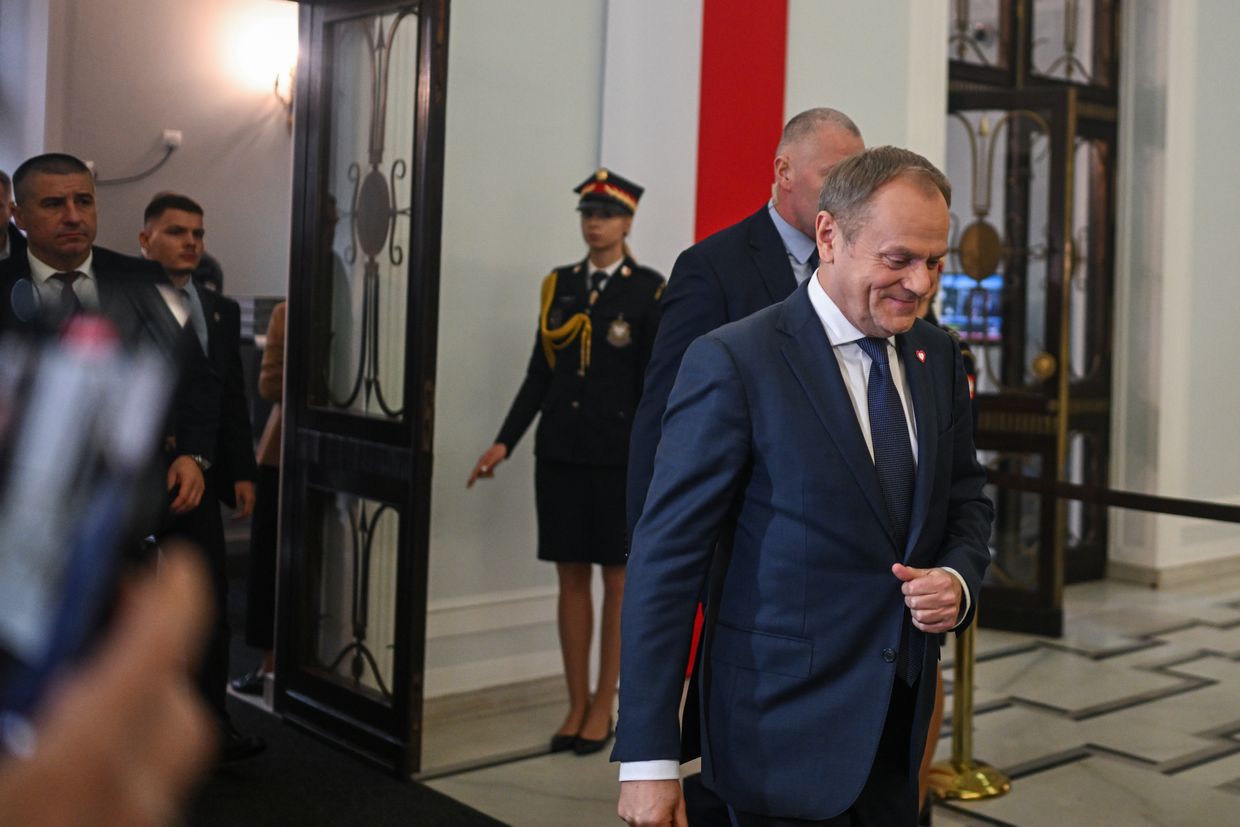Tusk warns economic disputes may spark 'anti-Ukrainian sentiments'

Polish Prime Minister Donald Tusk said that economic disputes between Poland and Ukraine may cause a "sudden emergence of anti-Ukrainian sentiments," the Polish Press Agency (PAP) reported on Feb. 11.
Tusk made the statement as Polish farmers launched a new wave of protests against imports from Ukraine, blocking several border crossings. In one incident on Feb. 11, the protesters spilled Ukrainian grain from standing trucks on the road, causing indignation in Ukraine.
"I do not think there is any significant conflict of opinion or interests between the (Polish) government and the protesting farmers," Tusk said during a meeting in the northern Polish town of Morag on Feb. 11.
"Certainly not in the case of Ukrainian agricultural exports without restrictions, without any effective limits by Poland, but also across the Lithuanian border."
Tusk emphasized that Poland wants to help Ukraine as a nation in its fight against Russian aggression, but "the fact that several hundred or thousand people in Ukraine want to earn a lot of money is not our problem."
The prime minister claimed that because of Polish empathy and openness, some people are trying to "use the war as a way of unfair competition with (Polish) companies, employees, and farmers."

Poland has been one of Ukraine's staunchest allies since the start of the full-scale Russian invasion, but the relations began to sour somewhat last year over agricultural trade disputes.
Both countries are major agricultural producers. When the EU lifted restrictions and tariffs on Ukrainian goods in 2022, farmers in Poland and other neighboring countries complained that cheaper imports from Ukraine presented an unfair advantage.
The previous Polish government of the Law and Justice (PiS) party instituted an import ban on Ukrainian grain and several related products, first as part of an EU-instituted measure between May 2023 and September 2023 and then unilaterally. Tusk's government, which has been in power since last December, said it does not intend to lift the ban.
Despite the ban on grain and related products, other items, such as sugar or poultry, continue to raise worries among Polish farmers. Poland also allows the transit of the banned products through its territory to third-party states.
Tusk said that "if Ukraine still wants to be able to mobilize the entire world in its favor during its struggle against Russia, it must also respect the interests of individual members of this community."
He added that just how easily can people become enthusiastic and ready to support Ukraine, so can this enthusiasm be "easy to break."
Previously, Polish carriers and farmers blocked four crossings between November 2023 and January to protest Ukrainian imports and liberalization of permits for Ukrainian truckers.
Polish farmers agreed to suspend their initial blockade on Jan. 6 after Agriculture Minister Czeslaw Siekierski agreed to meet some of their demands, including corn subsidies, increasing liquidity loans, and keeping agricultural tax at the 2023 level.
Truckers lifted their blockade not long after that.
A new wave of farmers' protests erupted on Jan. 24, blocking roads across Poland again in connection to imports from Ukraine and other non-EU countries.
The Solidarity trade union announced on Feb. 1 that they would block roads and border crossings with Ukraine between Feb. 9 and March 10 because of the supposed "passivity of the Polish authorities" and of the EU in solving the import issue.
Three crossings have been blocked since Feb. 9, and two others since Feb. 12.












